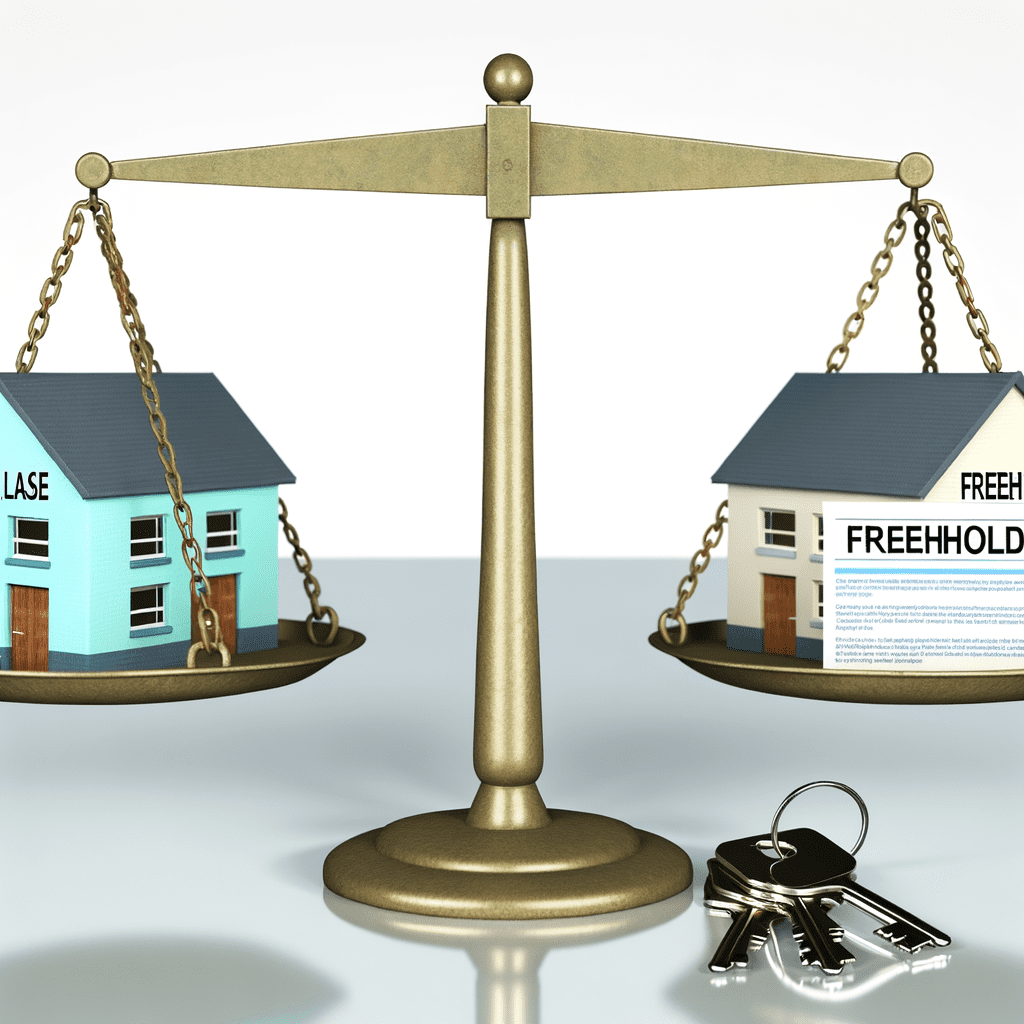Leasehold vs Freehold Properties: Which is Better for UK Home Buyers in 2024?
Understanding the Property Types: Leasehold and Freehold
Starting the property search journey is an exciting yet complex process, especially in the UK, where the home buying landscape is filled with varying property types. Two critical terms that continue to predominate UK property discussions are Leasehold and Freehold. Understanding these terms is crucial, as they can significantly impact your property ownership rights, financial implications, and saleability of the property.
A freehold property represents absolute ownership. When you buy a freehold property, you own the structure and the land on which it stands for an indefinite period. On the contrary, leasehold ownership implies that you only own the property (not the land it sits on) for a set, lease-agreed period, while the freeholder maintains land ownership.
The Law and Legal Rights
The leasehold and freehold structures incorporate varying legal rights and obligations. When you own a leasehold property, you will typically need to pay a ground rent to the freeholder, and your lease will set the conditions of your occupancy. These could include responsibility for maintenance of common areas, limitations on alterations, and restrictions on subletting.
Freehold owners, on the other hand, have full discretion over their property (subject to planning laws and covenants) and do not have to worry about lease expiry.
Financial Considerations
Financial considerations are another vital factor in deciding between a leasehold and freehold property. Freehold properties are often more expensive, but they are easier to manage in terms of expenses since there is no ground rent, service charges, or management fees typical of leasehold properties.
Leasehold properties can be initially cheaper but can sometimes be saddled with fees, such as escalating ground rents or charges for changing internal layouts. As the lease term reduces, the property’s worth may also reduce unless the lease is extended, which is a potentially costly process.
Property Value Resilience and Saleability
To maintain property value resilience for a leasehold property, one must keep an eye on the lease length. Properties with short leases can be hard to sell or secure a mortgage on. Banks and potential buyers tend to prefer leases that have over 80 years remaining to safeguard their investment.
Freehold properties do not come with this concern. They typically maintain their value well and are often more attractive to buyers who wish to avoid the uncertainties and potential additional costs of a leasehold.
Deciding what’s best for you
Making the right choice depends on a variety of factors, such as your financial capacity, property use and personal preference. If you seek absolute control over your property with a long-term view, a freehold may be more suitable.
Leasehold properties might be more suited to those seeking a possibly cheaper initial purchase, who are comfortable abiding by certain rules, and who have considered the potential costs and future implications of the lease terms.
At Flettons, we’re committed to safeguarding your investment. When considering a property purchase, trust our seasoned expertise to reveal any hidden threats. For a thorough building survey, get your instant quote through our quote calculator or reach out directly at 0203 691 0451. Your home’s safety is our top priority.

